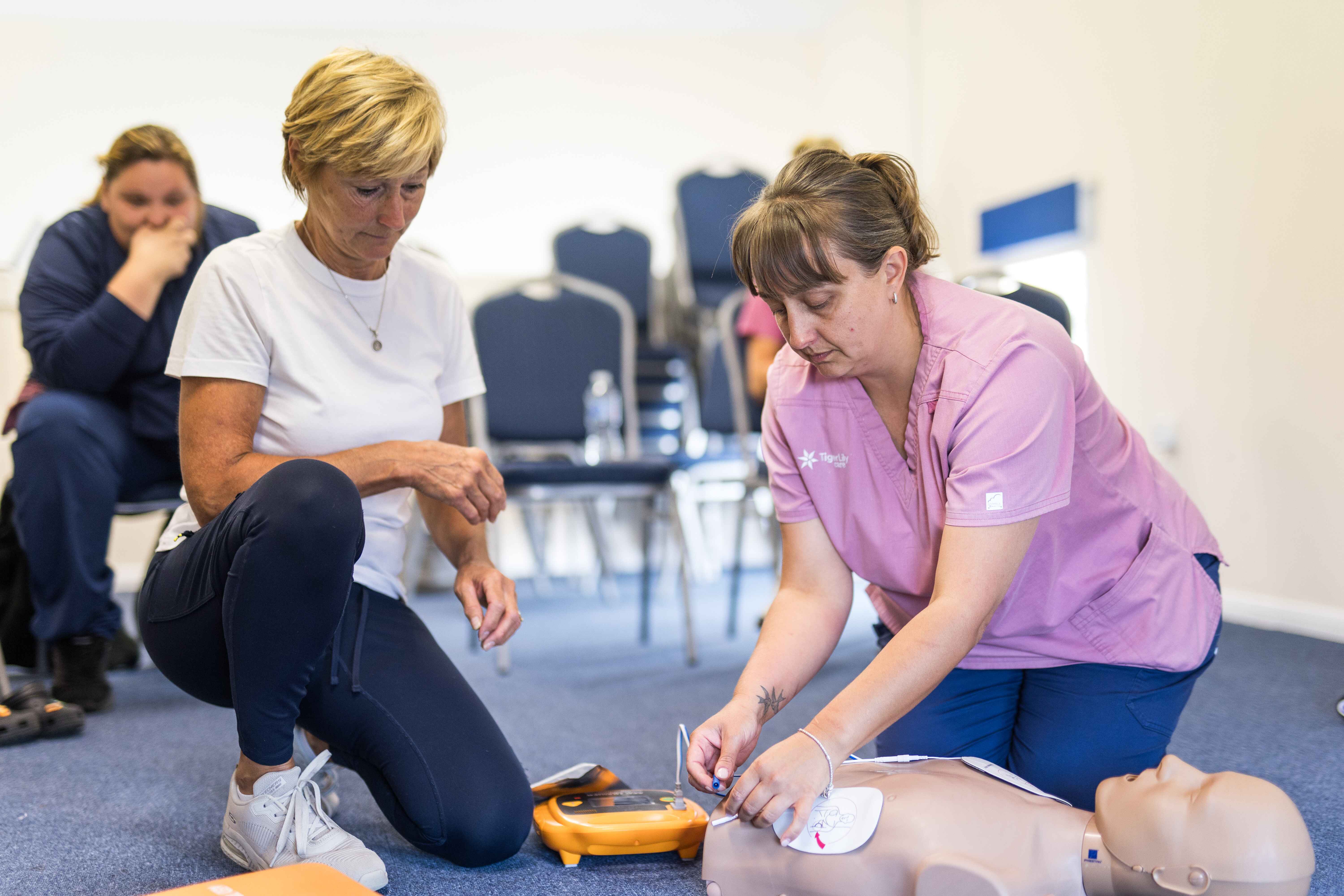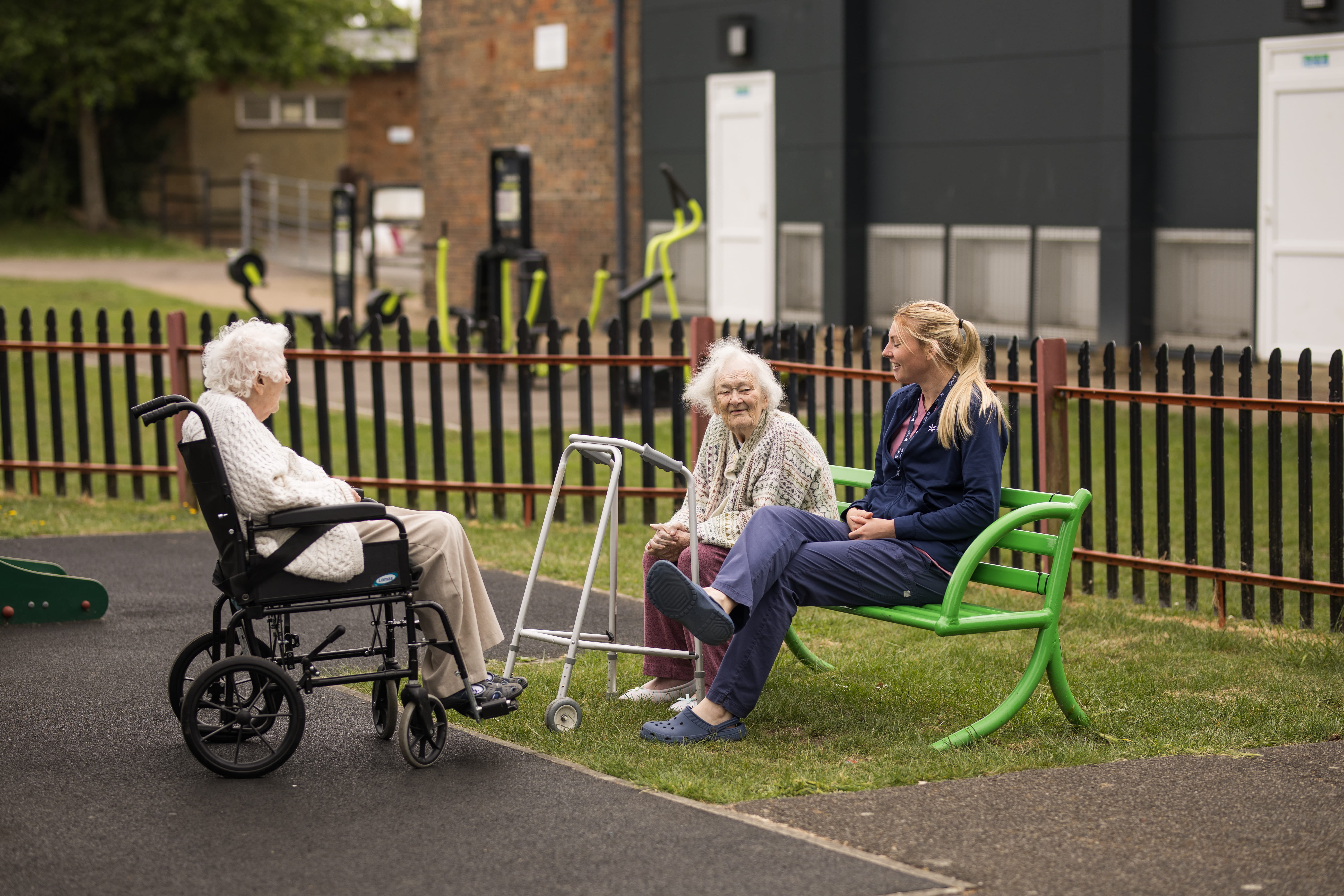Being a caregiver for a loved one is one of the most selfless and rewarding roles a person can take on. But it can also be exhausting, overwhelming, and emotionally draining. Whether you provide full-time care or support someone occasionally, it’s easy to neglect your own needs along the way.
This guide is for the carers, the unsung heroes, who need to hear that looking after themselves is not selfish, it’s essential. We explore the warning signs of burnout, simple and effective self-care strategies, and ways to build a support system that sustains your well-being for the long haul.
The Pressure of Being a Carer
Caring for someone with a chronic illness, dementia, or mobility issues often becomes a round-the-clock responsibility. Carers juggle medication schedules, appointments, personal care, emotional support, and sometimes work and family commitments too.
The pressure can build silently. Many carers feel they must always be available, put others first, and manage everything without asking for help. Recognising the emotional and physical toll is the first step toward making healthier choices.
It is easy to become overwhelmed by the challenges of care. Many carers can be left feeling isolated from the rest of the world when delivering care, and guilty whenever they aren’t.
Recognising the Signs of Carer Burnout
Burnout doesn’t happen overnight; it creeps in gradually. Knowing the warning signs can help you act early, preventing you from reaching a crisis and being unable to continue caring. Burnout can have a profound effect on an individual’s physical and mental health.
Emotional Signs
- Feeling overwhelmed or hopeless.
- Increased irritability or mood swings.
- Loss of interest in activities you once enjoyed.
- Constant anxiety.
Physical Symptoms
- Persistent fatigue.
- Difficulty sleeping.
- Frequent illness or headaches.
Behavioural Changes
- Withdrawing from friends or family.
- Neglecting your own health needs.
- Feeling guilty when taking time off.
If any of these symptoms sound familiar, it’s time to take action. Your health and well-being must always remain your top priority.
Why Self-Care Matters: For You and the Person You Support
When you’re well-rested and emotionally balanced, you’re better equipped to provide compassionate, effective care. Self-care strengthens resilience, reduces stress, and helps prevent mistakes caused by exhaustion.
Think of self-care as part of the care plan. It’s not an indulgence; it’s a responsibility that benefits both you and the person you’re supporting. You can think of it like the advice given during an aeroplane safety briefing: “Put your own oxygen mask on first before helping others”.
10 Self-Care Strategies That Actually Work
It’s all well and good knowing that we should take care of ourselves, but what does self-care actually look like? Here are ten realistic, flexible strategies that can help you care for yourself without needing hours of spare time.
1. Set Boundaries
Learn to say no to tasks you can’t manage. Setting limits protects your energy. Every successful caring relationship should be built on a foundation of openness, mutual respect, and compromise.
Explore alternative options with the individual you care for, seeking outside support as needed.
2. Ask for and Accept Help
Reach out to family, friends, or community services. You don’t have to do everything alone. If you are a professional carer, you can reach out to your colleagues, managers, or even an independent support service.
You may find it helpful to speak to your GP or an appropriately trained mental health professional if you are struggling with the symptoms of burnout.
3. Schedule Time for Yourself
Even short breaks can help. Read a book, go for a walk, or sit quietly with a cup of tea. A 15-minute recharge can have the potential to alter your day drastically.
Try to avoid the temptation of just picking up your phone and ‘doom scrolling’ through social media apps. Instead, try prioritising an activity that you know will promote relaxation and calm.
4. Stay Connected
Maintain social connections, even by phone or online. Talking to others helps lighten the load. This may include bonding time with people from work, or joining a new group or club activity.
Many carers find that organised group activities for the individual that they care for also give them an opportunity for positive social engagement.
5. Move Your Body
Gentle movement like walking, stretching, or yoga can release tension and boost mood. Even light exercise has numerous physical and mental health benefits that combat the symptoms of burnout.
Many people find that just spending an hour at the gym, going for a run, or swimming is enough to reset a negative headspace, getting them ready for the week ahead.
6. Prioritise Sleep
Aim for consistent sleep habits. Seek help if caring duties interrupt your rest regularly. You should not be regularly providing care both during the day and overnight (in the same 24-hour period). If you are, you must seek support from additional carers.
You may want to speak to your GP about any help they can offer, including signposting you to relevant support services.
7. Eat Well
Nourish yourself with simple, balanced meals. Don’t skip meals or rely on quick fixes, especially on busy days, as that’s when you need it most.
There’s nothing wrong with the occasional takeaway or ready meal (in fact, it’s a great treat after a hard day of caring). However, neglecting your diet can add to fatigue and other symptoms that make caring even more challenging.
8. Practice Mindfulness or Relaxation
Breathing exercises, journaling, or meditation can reduce anxiety and restore calm. These activities have been shown to reduce burnout, as they give your subconscious a chance to process the events of the day.
Many groups offer guided well-being workshops that teach essential mindfulness and relaxation skills.
9. Celebrate Small Wins
Recognise your efforts and acknowledge what went well each day. Regularly practising gratitude and self-compassion can prevent the overwhelming build-up of unresolved stress.
You may find that keeping a diary or bullet journal helps you to record and reflect on your achievements.
10. Stay Informed
Learn about the health conditions of the individual you are caring for. This can help you feel more confident and comfortable when providing care.
There are many resources available online that can give you a brief introduction to a wide range of medical conditions. Excellent sources include the NHS website and national charity websites (like MIND).
Building a Support Network
You don’t have to carry everything alone. A strong support network makes caregiving more manageable. Many sources of support are available to you, both formal and informal.
- Friends and family: Ask for help with specific tasks.
- Carer support groups: Share experiences with others who understand.
- Online communities: Join forums or social media groups for emotional support.
- Local services: Look into meal deliveries, transport help, or home care options.
- Emotional and spiritual support: Reach out to counselling services, well-being networks, or faith leaders.
Knowing you have backup can offer real peace of mind, helping to break down negative feelings like isolation or despair.
Accessing Professional Help and Resources
There’s no shame in needing extra support. In fact, the vast majority of people who care for others rely on help from supportive services. Professionals can provide tools, advice, and practical assistance.
- Contact your GP about your mental or physical health.
- Book a carer’s assessment through your local authority.
- Explore respite care options (e.g., short-term care breaks).
- Reach out to charities such as Carers UK or Age UK for advice and resources.
These services exist to support you; make use of them. Even if you are currently managing your care responsibilities well, accessing support allows you to plan and build resilience for the future.
Overcoming Guilt and Saying Yes to Yourself
Many carers feel guilty when they take time for themselves, fearing it means they’re letting someone down. But caring for yourself is not a betrayal of your loved one’s needs (or professional responsibilities if you are employed in care), it’s an act of kindness and long-term sustainability.
Reframe self-care as essential maintenance. You’re allowed to rest, to feel joy, and to have your own needs.
In Summary
Caring for someone else doesn’t mean forgetting yourself. By recognising the signs of burnout, using simple self-care strategies, and building a support system, you can stay healthy and resilient.
Remember, you matter too. Every moment you care for yourself is a step toward being the best carer you can be.
Now Try: Pick one self-care strategy to try this week, whether it’s a walk, a call with a friend, or saying no to an extra task. Your well-being starts with small steps.








